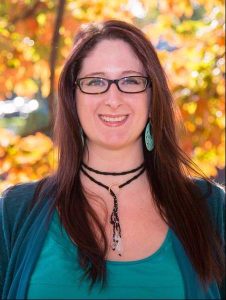How would your studies and / or your professional experiences advance the goals of WPA-GO? These goals may be found in the About Me section of WPA-GO’s website: http://wpacouncil.org/wpa-go (no more than 150 words) *
Over the past two years, I have worked closely with our WPA, Dr. Paul Lynch, participating in WP events, engaging in research and reflection on our approach to the first-year writing course, and assisting with our recent programmatic evaluation. Additionally, within the next two years, I will have experience as the assistant to the WPA. My studies focus on the ways educators respond to student work as well as the ways those responses are taken up by students, which aligns with and contributes to the WPA-GO goals of attending to writing instruction and programmatic development. I am also currently an assistant coordinator at our campus writing center, which not only support students’ development as writers but also fosters relationships with instructors and departments across the university, supporting a community of writers and teachers of writing.
What kinds of support do you value as a graduate student and how would you further those forms of support for others through WPA-GO? (no more than 250 words) *
As a graduate student, the most valuable forms of support and professional development that I have encountered have been mentorship and hands-on experience. Over the past two years, I have worked closely with the WPA and our writing center coordinators, both of whom have provided incomparable mentorships. I have seen their commitment to writing and student growth on our campus as well as seen and been able to help them in developing and improving those programs. They have demonstrated the processes and procedures that go into maintaining writing-focused programs and advised me on ways to become engaged in the field: organizations, conferences, and research experiences. As the writing center assistant coordinator, I have also had direct experience with program development, assessment, and daily administration, experience which I also look forward to having when I take on the role of WPA assistant. As a WPA-GO Graduate Committee member, I would be able to extend those forms of support to others. With my experience as a PhD student and through various assistantships, I can be a graduate mentor and assist others in finding and participating in the types of experiences that will benefit them as future WP members. More importantly, I would have a larger network of connections to facilitate guiding others to more advanced mentors and the right experiences to suit them and their professional and research needs.
CWPA pledges to “foster inclusion more generally; promote research into student diversities; promote policies that increase diversity in our membership and in the population of people who administer writing programs; and explicitly act against the structures that cause injustice today,” and WPA-GO is dedicated to supporting this mission. How will your selection to the WPA-GO Graduate Committee advance these goals? Please answer this question by choosing one barrier you identify to meeting these goals in writing studies. How would your work within WPA-GO specifically address this barrier? (no more than 500 words) *
Since 2003, I have worked in writer centers across the state of Missouri. In that time, I have seen many strong writers who know the value of a writing consultation and sought out advice to make a solid draft even better. In that time, I have also seen far, far more ‘weaker’ or at-risk writers, those who have reached out for help because (for whatever reasons) they were not finding or understanding the guidance they needed in their respective classes or programs. These at-risk writers are more often than not students who come from less privileged backgrounds (socio-economically or otherwise) or who have often not had the expected types of support or education in writing. In my time teaching at Saint Louis University, I have also become an active participant in programs that promote understanding of diversity as well as providing support for diverse communities. SLU’s Reinert Center for Transformative Teaching and Learning (CTTL) offers regular workshops on pedagogy, and I am currently enrolled in (and nearly finished with) their Foundations Certificate. Additionally, the CTTL hosts a yearly winter institute; I attended the two most recent ones, which had the themes of “Students-as-Producers” and “Teaching and Justice.” Most importantly, though, I have spear-headed a partnership between our writing center and the SLU Prison Program, which offers courses and degrees to people who are incarcerated as well as the prison staff; this partnership provides writing help to populations have been previously cut off from such services, populations who are even more likely to have diverse needs as well as diverse socio-economic and educational backgrounds. From my experience, one of the most significant barriers to fostering diversity and inclusion is access. Diverse students have less access to the resources and support they need to succeed, and on the other hand, resources and support services don’t always have immediate access to the students they can do the most to help. As a member of the WPA-GO Graduate Committee, I would work to foster more partnerships like that with the SLU Prison Program, partnerships which connect diverse populations with the right resources. Additionally, I would bring unique experiences and perspectives on diverse students and alternative ways to foster relationships and inclusion across campus communities (not just within the Writing Program), which would help the committee advance those goals.
